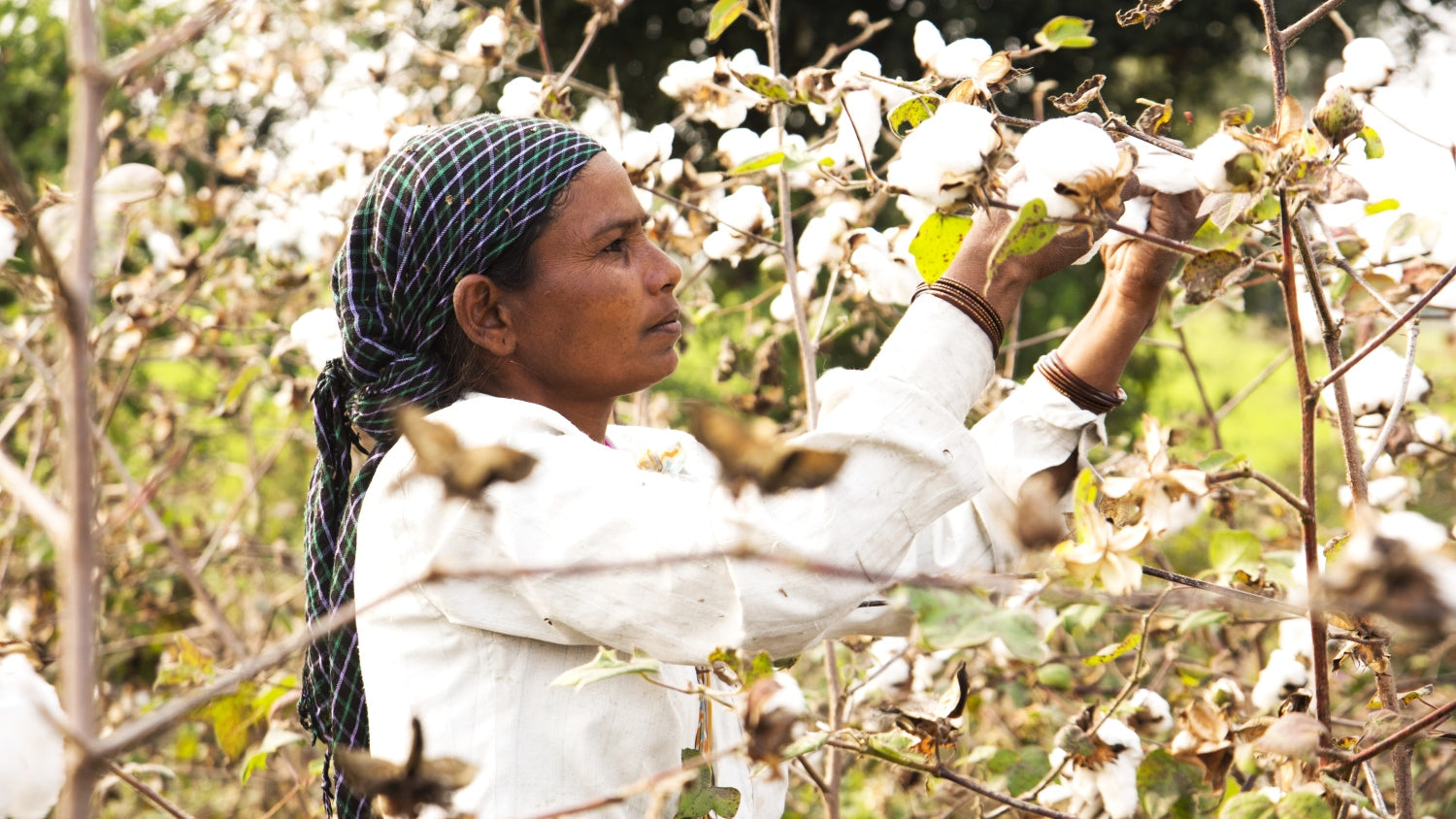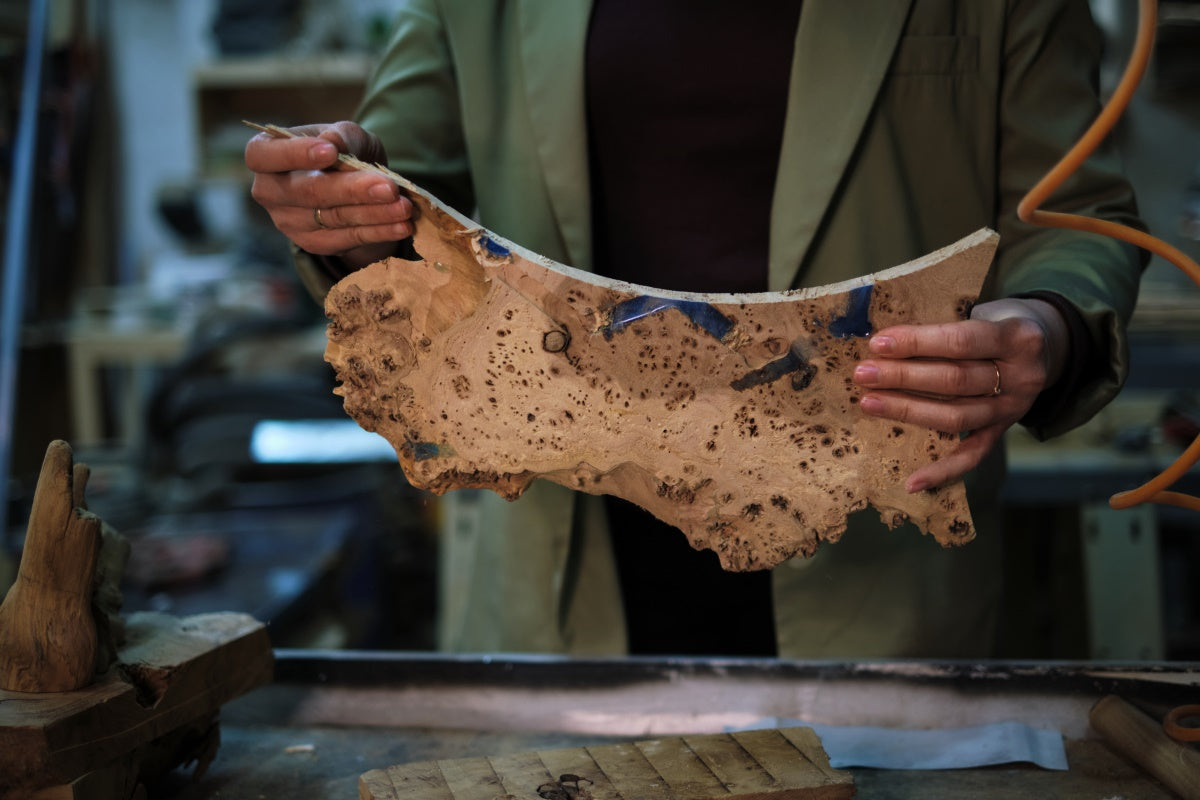No matter what clothes you buy, be it a huge gown or a tiny handkerchief, there is no escaping cotton. But not all cotton is good cotton. Despite of the pretty much the same name, organic cotton and regular cotton are two completely different things. Be it how they're grown or how they affect the environment, they are completely different things. Let's unveil what exactly is organic cotton is? Why it's good? How it impacts the planet? and how it compares to other sustainable materials like linen and hemp.
What's Organic Cotton?
Organic cotton is grown without using artificial pesticides, fertilizers, or genetically modified seeds. Instead, farmers use natural ways like rotating crops, mixing different plants, using helpful insects, and weeding by hand. Organic cotton is also processed and dyed using fewer harmful substances than regular cotton, making it cleaner and safer.
Organic cotton gets certified by certain standards like the Global Organic Textile Standard (GOTS), which is one of the most widely recognized and respected certification standards for organic textiles in the world. GOTS covers the production, processing, manufacturing, and labeling of organic textiles, including cotton. GOTS has strict ecological and social criteria, such as reducing water and energy consumption, protecting biodiversity, ensuring fair wages and working conditions, and prohibiting child labor. GOTS also has a logo that can be used on the products and packaging of certified organic textiles.
Why Choose Organic Cotton?
Organic cotton has got some benefits for the environment and for the people who live in it:
Eco-friendly: It's much better for the environment when the other option is to regular cotton. It has been seen that it can save gallons of water and tons of greenhouse gas emissions. It also helps keep the soil healthy and doesn't harm animals or waterways.
Healthy: Organic cotton is safer and comfier for our skin, especially for folks with allergies. It doesn't have any bad stuff from pesticides, dyes, or bleaches that might cause irritation. It's also good at keeping us cool and dry.
Ethical: Choosing organic cotton supports farmers and workers by paying them fairly and giving them better working conditions. It stands against bad things like child labor and unfair treatment.

The Impact of Organic Cotton
Using organic cotton is good for the planet and for us. It uses save water, energy, and land. It helps us fight against global warming and stay healthy. And it doesn’t create a lot of trash, because it can be turned into something new or go back to the soil.
Saving water, energy, and land: Growing organic cotton doesn’t need a lot of water, energy, or land. It uses much less than regular cotton. That means we don’t waste our precious resources and we don’t harm the environment.
Protecting animals and plants: Growing organic cotton doesn’t use any nasty chemicals, like pesticides, fertilizers, or GMOs, that can hurt the soil, water, and living things. It also uses natural ways of farming, like rotating crops, planting different things together, and using friendly bugs, that make the soil rich and diverse.
Fighting global warming: Organic cotton slows down global warming, as it stores more carbon in the soil and releasing less into the air.
Staying healthy: Wearing organic cotton is more comfortable on skin, especially if we have allergies or sensitivities. It doesn’t have any harmful leftovers from chemicals that can cause itching, swelling, or rashes. It also lets our skin breathe and stay dry, which helps us keep cool and avoid sweating.
Reducing trash: Organic cotton can break down and become part of the soil again, unlike synthetic fibers that can last for hundreds of years in the garbage and the ocean. Organic cotton can also be made into new things, like yarn, fabric, stuffing, or paper, or turned into organic fertilizer, which makes it last longer and leave a smaller mark.
But, it's not perfect.
Challenges of Organic Cotton
Organic cotton has some downsides. It can’t be produced as much as regular cotton, so it needs more land and work to make the same amount. It's also more expensive because it costs more to grow and get certified. Plus, it's not as widely available as regular cotton.
Organic Cotton vs. Other Sustainable Choices
There are other great natural materials like linen and hemp that also help the environment:
- Linen: It’s light, breathable, and looks elegant. But it wrinkles easily and can be pricier. Linen is made from the flax plant, which grows well in poor soil and requires little water and chemicals. Linen is highly absorbent and resistant to dirt and stains. Linen has greater elasticity than hemp, which makes it less likely to tear. However, linen also tends to crease and shrink more than hemp, and it is more expensive and less available than cotton.
- Hemp: It’s tough and versatile, used for clothes, building, and more. But it can feel rough and faces legal restrictions in some places. Hemp is derived from the cannabis plant, which has many uses besides fabric, such as paper, rope, and biofuel. Hemp is very strong and durable, and it can withstand sunlight and mildew. Hemp is also naturally antimicrobial and UV-resistant. However, hemp can also be coarse and stiff, and it has very little elasticity. Hemp is also subject to legal and regulatory barriers in some countries, which limit its production and availability.
Wrapping It Up
Organic cotton is a good choice for those who care about the environment and fair treatment of workers. It's eco-friendly, healthy, and fair but comes with challenges like cost and availability. Linen and hemp are also cool options for sustainability. What's most important is making informed choices to support a more eco-friendly world.


